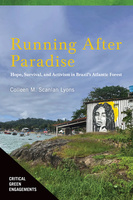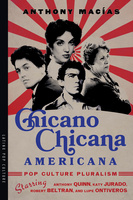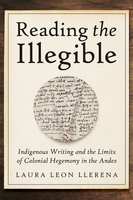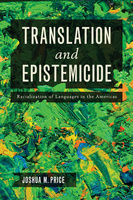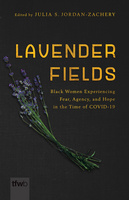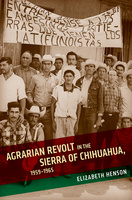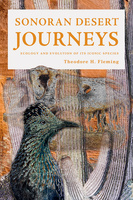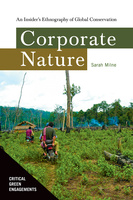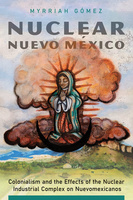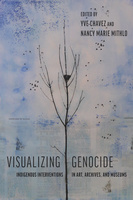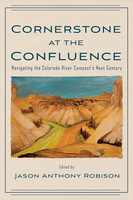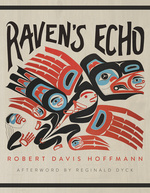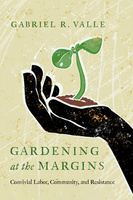The University of Arizona Press is the premier publisher of academic, regional, and literary works in the state of Arizona. They disseminate ideas and knowledge of lasting value that enrich understanding, inspire curiosity, and enlighten readers. They advance the University of Arizona’s mission by connecting scholarship and creative expression to readers worldwide.
Voluntourism and Multispecies Collaboration
Life, Death, and Conservation in the Mesoamerican Barrier Reef
An ethnographic exploration of the world of conservation voluntourism and relations of care between humans and vulnerable species on the Honduran Bay Island of Utila.
Running After Paradise
Hope, Survival, and Activism in Brazil's Atlantic Forest
This book looks at social-environmental activism in one of the world’s most important and threatened tropical forests—Southern Bahia, Brazil. It explores what it means to be in and of a place through the lenses of history, environment, identity, class, and culture. It uncovers not only what separates people but also what brings them together as they struggle and strive to create their individual and collective paradise.
Chicano-Chicana Americana
Pop Culture Pluralism Starring Anthony Quinn, Katy Jurado, Robert Beltran, and Lupe Ontiveros
This exciting new cultural history documents how Mexican Americans in twentieth-century film, television, and theater surpassed stereotypes, fought for equal opportunity, and subtly transformed the mainstream American imaginary. Through biographical sketches of underappreciated Mexican American actors, this work sheds new light on our national character and reveals the untold story of a multicentered, polycultural America.
Reading the Illegible
Indigenous Writing and the Limits of Colonial Hegemony in the Andes
Translation and Epistemicide
Racialization of Languages in the Americas
From the early colonial period to the War on Terror, translation practices have facilitated colonialism and resulted in epistemicide, or the destruction of Indigenous and subaltern knowledge. This book discusses translation-as-epistemicide in the Americas and providing accounts of decolonial methods of translation.
Lavender Fields
Black Women Experiencing Fear, Agency, and Hope in the Time of COVID-19
Lavender Fields uses autoethnography to explore how Black girls and women are living with and through COVID-19. It centers their pain, joys, and imaginations for a more just future as we confront all the inequalities that COVID-19 exposes.
Agrarian Revolt in the Sierra of Chihuahua, 1959–1965
Sonoran Desert Journeys
Ecology and Evolution of Its Iconic Species
This book explores the evolution and natural history of iconic animals and plants of the northern Sonoran Desert through the eyes of a curious naturalist.
Corporate Nature
An Insider's Ethnography of Global Conservation
Drawing from personal experience, Sarah Milne looks inside the black box of mainstream conservation NGOs and finds that corporate behavior and technical thinking dominate global efforts to save nature, opening the door to unethical conduct and failure on the ground.
Nuclear Nuevo México
Colonialism and the Effects of the Nuclear Industrial Complex on Nuevomexicanos
Nuclear Nuevo México recovers the voices and stories that have been lost or ignored in the telling of U.S. nuclear history. By recuperating these narratives, Myrriah Gómez tells a new story of New Mexico, one in which the nuclear history is not separate from the collective colonial history of Nuevo México but instead demonstrates how earlier eras of settler colonialism laid the foundation for nuclear colonialism in New Mexico.
Visualizing Genocide
Indigenous Interventions in Art, Archives, and Museums
Visualizing Genocide engages the often sparse and biased discourses of genocidal violence against Indigenous communities documented in exhibits, archives, and museums. Essayists and artists from a range of disciplines identify how Native knowledge can be effectively incorporated into memory spaces.
Cornerstone at the Confluence
Navigating the Colorado River Compact's Next Century
Guarded by Two Jaguars
A Catholic Parish Divided by Language and Faith
This ethnography examines the role of language and embodied behaviors in producing a congregational split in a Catholic parish serving Guatemala’s Q’eqchi’ Maya people. Drawing on a range of methods from linguistic and cultural anthropology, author Eric Hoenes del Pinal examines how the introduction of the Catholic Charismatic Renewal movement in the parish produced a series of debates between parishioners that illustrate the fundamentally polyvocal nature of Catholic Christianity.
Raven's Echo
Gardening at the Margins
Convivial Labor, Community, and Resistance
This book explores how a group of home gardeners grow food in the Santa Clara Valley to transform their social relationships, heal from past traumas, and improve their health, communities, and environments.



